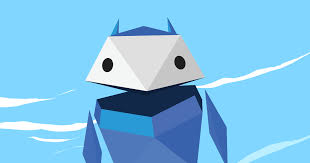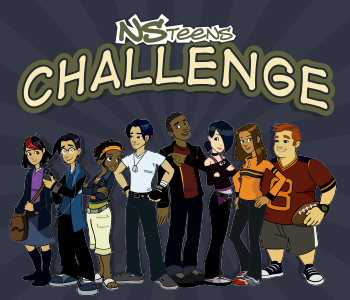
With school starting fully or partially online, depending on your district, there’s a lot to keep track of. New technology, new routines, usernames, passwords – to anyone braving these waters, know that we at the library are here for you! This blog post highlights three engaging resources specifically designed to help children and teens learn how to learn and play online safely – and kindly. Formats include picture books, videos, quizzes, and games – experiences meant to connect with youth through play and exploration. You can click through the embedded links to see these for yourself. Let the fun begin!
Faux Paw the Techno Cat (Early Elementary)

Geared toward grades K-3, this book series features a cat named Faux Paw and his misadventures with technology. Most of these short e-books are available as PDFs, narrated e-books, or animated videos. The corny cybersecurity-themed songs, activity pages, and cartoon style certainly fit with their intended demographic, however slightly older kids may also benefit from the topics discussed. The most recent book, Faux Paw and the Unfortunate Upload, specifically touches on the downsides of trying to go viral that may be helpful for children encountering social media platforms like Tik Tok for the first time. “Faux Paw the Techno Cat” is one of several resources made available to families and educators by iKeepSafe, a company specializing in helping educational products comply with state and national privacy and child safety laws.
Interland (Upper Elementary / Middle School)
“Interland” is a set of four engaging games that take place on digital floating islands, each of which focus on a different area of online safety. It is part of “Be Internet Awesome,” a collaboration between Google and digital safety experts iKeepSafe, ConnectSafely, and the Family Online Safety Institute. “Mindful Mountain” focuses on deciding who to share information online with, and how. “Reality River” teaches players to detect and report scammers and phishers. “Tower of Treasure” covers password security. Finally, “Kind Kingdom” deals with cyberbullying. The games can be played in any order.

The animation is modern, chunky, and colorful, and the games have simple controls and objectives – features that children who are used to playing Roblox and other online games should respond to well. In service of a fun player experience, however, sometimes the educational content becomes simplified or abstract. The quizzes at the end may ask questions the players need more context to answer. To get the most out of “Interland,” talk with your child about their playing experience, and check out the “Be Internet Awesome Family Guide,” available here.
NS Teens (Middle School / High School)
This website houses a ton of games, quizzes, videos, and more intended for teen and tween audiences. NetSmartz, who co-created this site, is a program of the National Center for Missing and Exploited Children, and as a result it has a strong focus on teaching youth not to meet up or share personal information with strangers they befriend online. However, the website tackles a lot of other key topics for teens, including data security, unwise social media sharing, cheating on schoolwork, and even bad gamer behavior.

One of the coolest experiences, in my opinion, is the comics: interactive stories that unfold as you scroll the mouse, which allow you to choose the main character’s actions. The quizzes are also fun, and a bit funny – perfect for ages 8-12. The games – which interestingly tackle subjects such as stopping your friends and family from oversharing online – follow rules that will be familiar to players of “Angry Birds,” “Plants vs. Zombies,” and other popular games. However, since they rely on Flash, they may not work on every browser or device. The website also includes three types of videos: animated stories, interviews with teens on certain topics, and “real-life stories” – the last category intended for older teens, ages 11-17, because of the serious content discussed.
If you like this organization’s work but have a younger child, check out their other major resource, NetSmartz Kids. It includes printable activity sheets, an animated cartoon series, and a game called “Cloud Chaos” meant for ages 5-8.
For More on This Topic
The organizations who create the resources I’ve just discussed all provide guides for families and/or teachers that can be found on their websites. In addition, there are other groups promoting digital safety for all ages. Stop. Think. Connect. is a national awareness campaign with a large library of printable resources. The nonprofit Cyber Savvy Kids provides some eBooks and activity sheets for children, as well as detailed PDF guides for educators and families who sign up to receive access. Your library staff can also help connect you to books and other internet safety resources.
Good luck out there, families, and stay safe (online and IRL)!